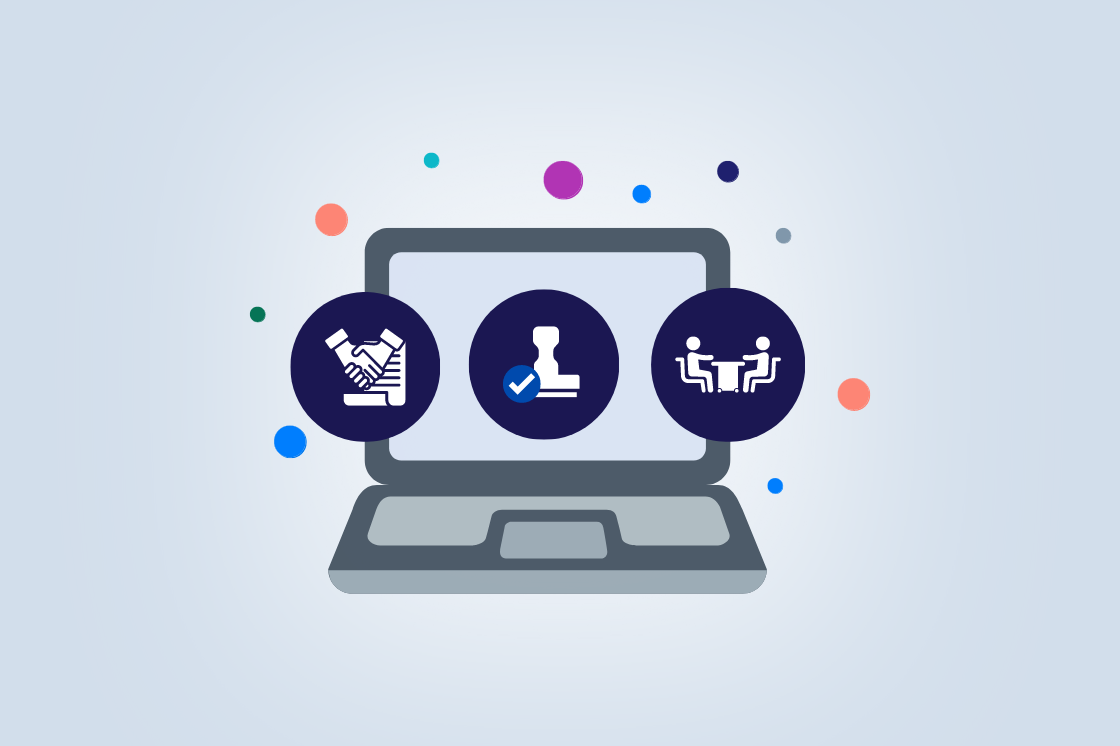Boosting Productivity and Profitability In Business Process Consulting
Process consulting firms help organizations streamline workflows and drive digital transformation. However, manual practices often hinder the consultant's productivity and profitability. Let's look at how these consulting firms can improve their internal practices.
"Have you heard the old saying, 'The cobbler's children have no shoes'?"
Consulting firms often prioritize clients' needs over their own, but this can ultimately harm productivity and profitability.
There are three ways in which a consulting firm can increase productivity and drive profitability.
Three ways in which business process consulting firms can increase productivity and profitability include:
- Creating and managing a library or reusable process templates
- Adopting a standardized delivery model
- Utilizing business process management tools
Let's begin by examining some of the difficulties faced by firms that provide business process consulting.
The Challenges Faced by Business Process Consulting Firms
Process consulting firms face various challenges in their day-to-day operations.
- Managing Intellectual Property: Your intellectual property is what distinguishes you from your competitors. Therefore, it is essential to ensure that your consultants can easily locate and reuse process templates and other artifacts. Investing in a repository that simplifies the use of your process templates and similar resources is crucial.
- Time constraints and tight deadlines: Process consultants often have to juggle multiple projects and deadlines, requiring them to work efficiently and deliver results promptly. Access to tools, such as the Navvia Process Designer, will significantly enhance process consulting productivity.
- Maintaining quality across multiple deliveries: As process consulting firms expand their client base and grow their workforce, maintaining quality becomes increasingly challenging. Adopting a standardized delivery approach, supported by the right tools, can help maintain quality and keep new employees on track.
- Complexity of client processes: Consultants often encounter the challenge of dealing with complex processes within client organizations. They need to analyze intricate workflows to identify bottlenecks and streamline processes. Having access to Business Process Analysis software can significantly enhance the effectiveness of a consultant.
Overall, process consulting firms operate in a dynamic and demanding environment, where they must overcome challenges related to process complexity, adaptability, repeatability, and time management.
Creating reusable Process Templates
One effective strategy to improve productivity in process consulting firms is the creation of reusable process templates. These templates serve as a foundation for future projects, allowing consultants to leverage existing knowledge and best practices. By standardizing processes and creating templates, firms can streamline their operations and reduce the time required for each project.
Reusable process templates also promote consistency in deliverables, ensuring that clients receive high-quality results every time. Additionally, these templates enable knowledge sharing within the firm, as consultants can easily collaborate and build upon existing templates.
Creating reusable process templates is a proactive approach that enhances efficiency, accelerates project timelines, and improves overall productivity in process consulting firms.
Adopting a Consistent Delivery Approach
To boost productivity and profitability, process consulting firms should adopt a consistent delivery approach. This approach involves establishing a standardized methodology for project execution, from initiation to completion.
By following a consistent delivery approach, firms can:
- Eliminate unnecessary variations and inefficiencies in their processes. This leads to improved resource allocation, better project management, and enhanced client satisfaction.
- Improve the onboarding and productivity of new employees.
- Enables process consulting firms to measure and monitor their performance, identify areas for improvement, and implement corrective actions.
- Optimize their business process consulting projects and achieve higher levels of productivity and profitability.
Business Process Analysis and Process Mapping Tools
A process consulting project involves working with many different types of deliverables including:
- Process maps
- Process documentation
- SOP (standard operating procedures)
- RACI Charts
- User stories and technical requirements
The Navvia Process Designer can help standardize and automate the creation of these various deliverables freeing up the consultant for higher-value work.
You can also check out this Guide to Selecting Business Process Mapping Tools.
Developing Specialized Training Programs for Staff
Investing in specialized training programs for staff is essential for boosting productivity in process consulting firms. These programs help consultants develop the necessary skills and knowledge to excel in their roles.
By providing training on industry-specific methodologies, tools, and techniques, firms can enhance the expertise of their consultants and deliver better results to clients.
Specialized training programs also foster a culture of continuous learning and improvement within the firm, as consultants stay updated with the latest trends and innovations.
By developing specialized training programs, process consulting firms can empower their staff, improve their capabilities, and drive productivity.
Measurement and Continual Improvement
Measurement and continual improvement are critical aspects of boosting productivity and profitability in process consulting firms.
Firms should establish performance metrics and key performance indicators (KPIs) to track their progress and identify areas for improvement. Regular monitoring and analysis of these metrics allow firms to identify bottlenecks, inefficiencies, and opportunities for optimization.
By implementing a culture of continual improvement, firms can proactively address issues, refine their processes, and enhance overall productivity and profitability.
Measurement and continual improvement are ongoing practices that enable process consulting firms to stay competitive and deliver exceptional results.
Summary
In summary, enhancing productivity and profitability in process consulting firms requires a multifaceted approach.
Understanding the challenges faced by these firms is crucial for overcoming obstacles related to process complexity, adaptability, and time management.
Creating reusable process templates promotes efficiency and consistency, while adopting a consistent delivery approach optimizes project execution.
Implementing technology solutions enhances efficiency and enables data-driven decision-making.
Developing specialized training programs empowers staff and improves capabilities.
Finally, measurement and continual improvement drive ongoing optimization and success.
By implementing these key strategies, process consulting firms can boost their productivity and profitability, positioning themselves as trusted partners for their clients.



